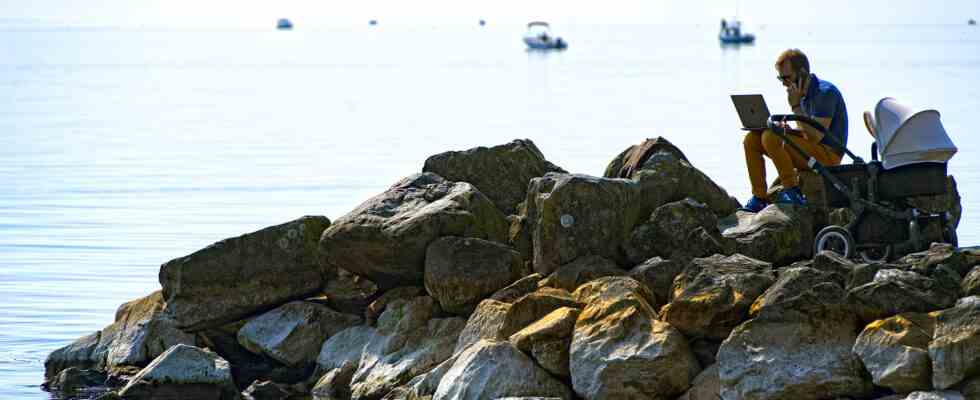Status: 10/13/2022 3:19 p.m
Work and vacation: For more and more people, these are no longer opposites. For the cold season, longer stays in the warm south are particularly popular with tour operators.
Working where others go on vacation: That is the idea behind “Workation”. The term is made up of the English words “work” (work) and “vacation” (holiday). That may sound a bit cumbersome – but the idea behind it is certainly not. Digital networking makes it possible to work flexibly from holiday locations.
Vacation and home office merge
Admittedly, not everyone can move their home office to the beach or the mountains in order to switch directly to vacation mode before or after work. In principle, you have to be able to do your work with the help of digital technologies from practically anywhere in the world – provided you have a working internet connection.
These can be computer scientists, bloggers, designers or even PR experts. Freelancers in particular have an advantage here; Employees have to get the boss’s OK first.
Workation offers in high demand
A look at the supply side shows that “workation” is a growing trend that does not only affect a small group of “digital nomads”: Some hotels now have rooms with office equipment, the best WiFi and printers ready for it.
Tour operators are also feeling the growing demand for Workation offers and are reacting to it. For stays of more than three weeks, around 1,500 bookings for a special offer for the cold season were received within a few days, Europe’s largest tour operator TUI announced today.
Long-term vacations and workation are in vogue
On average, customers opted for almost 25 nights and spent 2,258 euros per person for the trip. At peak times, travelers stayed for up to 63 nights at a time.
“With the new possibilities of working from home and flexible working time models, the Workation trend has created a whole new clientele,” emphasizes Stefan Baumert, CEO of TUI Deutschland. “All in all, the segment of long-term and workation vacationers could soon exceed the threshold of 100,000.”
High energy prices – escape to the warm south?
Turkey, North Africa with Egypt and Tunisia as well as the Canary Islands such as Tenerife or Fuerteventura are currently in particularly high demand. For some long-term vacationers and Workation fans, the increased energy costs in this country may also play a role.
After all, the energy costs for a model household rose by around 85 percent or 3636 euros to 7912 euros in September compared to the same month last year, as the comparison portal Check24 calculates. “Consumers are paying more for heating this winter than ever before,” explains Steffen Suttner, Energy Manager at Check24. An end is not in sight for the time being. “With particularly freezing temperatures, energy costs will continue to rise.”
High inflation as a brake on consumption
Workation is not just a winter trend, as TUI Germany Managing Director Baumert emphasizes. The potential for this is there in both summer and winter. But the high inflation, which reached a historic high of 10.0 percent in Germany in September, has what it takes to dampen the demand for holidays in general and thus also for workation offers.
“In perspective, the prices for travel will also go up,” said Norbert Fiebig, President of the German Travel Association (DRV), yesterday. It is therefore necessary to wait and see how the propensity to consume will develop in the coming weeks against the background of rising inflation. The simple question with a view to the holiday budget is: “Will people still have money in their wallets?”

